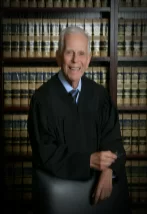LOS ANGELES (Legal Newsline) - Stating a U.S. Supreme Court decision “is not binding on California courts,” an appeals court restored a worker’s lawsuit under the state private attorneys general law on behalf of hundreds of fellow employees although she didn’t file an individual claim for herself.
The Supreme Court ruled in Viking River Cruises v. Moriana in 2022 that employees didn’t have standing to pursue so-called PAGA claims on behalf of coworkers if their individual claims were sent to arbitration. The California Private Attorneys General Act allows citizens to sue over violations of state labor laws “as the proxy or agent” of the state.
Justice Sonia Sotomayor warned in Viking Cruises that if the U.S. Supreme Court’s reading of state law was wrong, California courts “will have the last word.” The California Supreme Court spoke in 2023 in a case involving Uber Technologies, ruling that employees can pursue representative PAGA claims regardless of whether they also have an individual claim.
California’s Second District Court of Appeals applied that ruling in an April 18 decision restoring a lawsuit by Lizbeth Balderas against Fresh Start Harvesting, accusing the company of violating various state labor laws.
The trial court dismissed her case because she never filed an individual claim, but that was error in light of the California Supreme Court’s decision repudiating Viking Cruises. Balderas claimed to represent 500 coworkers.
"Balderas met the standing requirements. She alleged that she 1) was an 'aggrieved' employee of Fresh Start, and 2) was subject to one or more Fresh Start violations," Justice Arthur Gilbert wrote.
"She alleged, '[W]hen Employees including Ms. Balderas started work for Fresh Start at around 6:00 a.m. or 7:00 a.m., they regularly were not provided a meal period until after 5 hours of work for shifts longer than 5 hours.' This delay in providing timely meal periods for her and other employees violated their right to have 'a meal period within the first five (5) hours of work.'"
Workworld Law represented Balderas, while Fresh Start was represented by Gillett Law.
